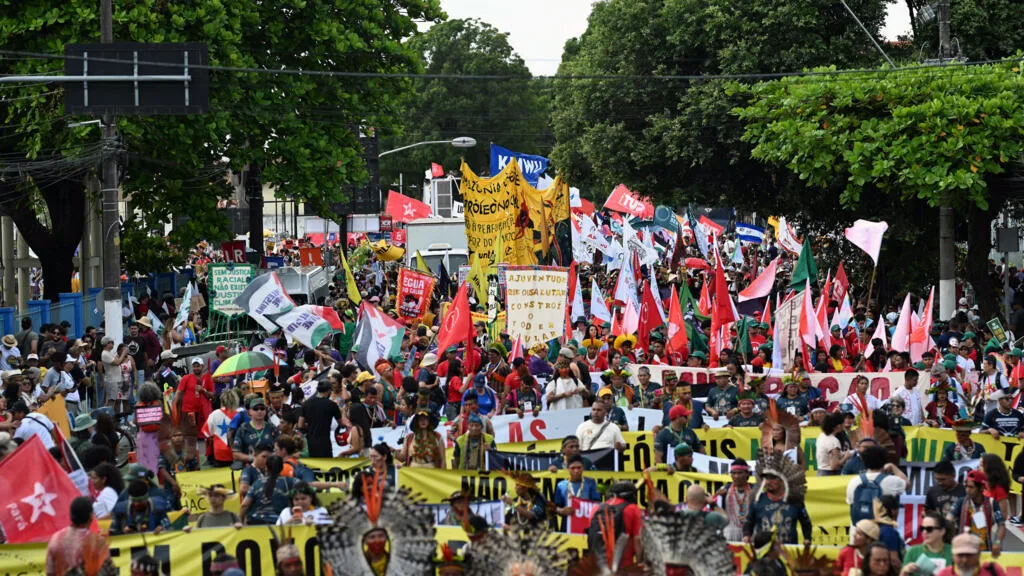Thousands of climate protesters gathered outside the COP30 summit in Belém, Brazil, marking the first time since 2021 that demonstrators have been allowed to rally directly outside UN climate talks. For many activists, the return of public protest at the negotiations underscored a growing frustration: years of climate pledges with too little action.
Marching under the intense Amazonian sun, demonstrators chanted “free the Amazon” while carrying three giant coffins labelled Oil, Coal, and Gas, symbolising a “funeral for fossil fuels.” The theatrical display, complete with grim reapers, reflected the urgency felt by many. “Enough is enough with COP meetings and theory. It’s time to actually act,” said Tuga Cíntia from Brazil’s Hydra Dance theatre group.
Indigenous communities—long recognised as the Amazon’s most effective guardians—were at the forefront. Carrying signs such as “the answer is us” and “demarcation now,” they demanded legal protection for ancestral lands amid increasing threats from extractive industries. More than a hundred Indigenous groups are stationed across the Amazon, and many fear their voices are not being heard within the official COP30 venue.
Climate activists from around the world joined the march, including Brianna Fruean from Samoa, who highlighted the vulnerability of low-lying islands. “We know what it’s like to live on the frontline of climate change,” she said.
Tensions were noticeable throughout the week. Security remained tight after a group of protesters briefly broke through barriers on Tuesday, leaving two security officers with minor injuries. Meanwhile, the presence of an estimated 1,600 fossil fuel lobbyists—an all-time high—has drawn sharp criticism from campaign groups.
Progress inside the negotiations has been slow, partly due to the striking absence of the United States, which sent no delegation after President Donald Trump dismissed climate change as “a con.”
As nearly 200 countries continue talks, Brazil hosted by President Lula da Silva has promised that COP30 will deliver concrete steps to implement years of promises. But with new oil exploration approved near the Amazon’s mouth, activists say actions must speak louder than words.

